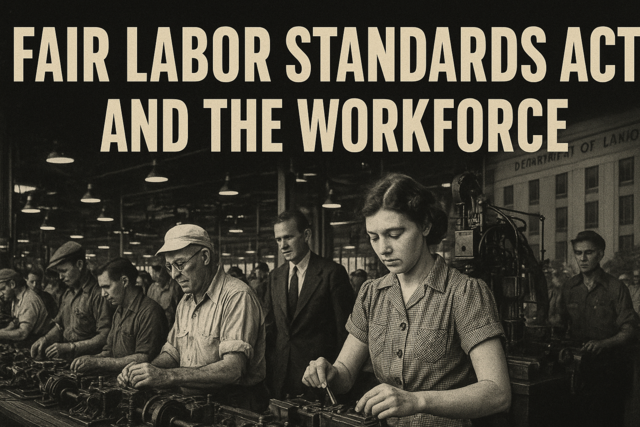For most of us, it is traumatic enough just to have an injury at work. But, experiencing a denial of benefits from your employer or your employer's insurance company can make the situation a great deal worse. In addition to the potential significant financial hardship that a worker would face, there is also a good deal of stress, confusion, and sometimes anger.
There can be many reasons for a denial of benefits. When faced with the prospect of a denial, an injured worker might first be prompted to think that his or her employer is thinking that the case is fraudulent. While there are, unfortunately, many fraudulent cases filed each year, there are many other reasons for having a claim denied, and many of them are purely administrative in nature. In the Workers' Compensation system, there are very specific rules that must be followed, deadlines to meet, and forms to be completed. If any of these items are incomplete or improperly submitted, your chances of having a claim denied are greatly increased.
All employers and insurance companies must follow state laws and guidelines when evaluating a Workers' Compensation claim. An insurance company has the responsibility to promptly notify a worker of a denial claim within 21 days of receiving the claim. The company must submit a Notice of Denial to the worker. If they fail to do so, they can be held responsible for interest, penalties, and attorney fees.
It is not uncommon for an insurance company to deny just a portion of your Workers' Compensation claim. In their Notice of Denial, they must fully and clearly state which benefits they are denying and their reasons for doing so. If the denial is for purely administrative reasons (for example, missing information on a form), a call to the insurance company could correct the matter quickly and efficiently. There will be instances, however, when you will need to consult an attorney to ask for expert advice on how to deal with a denial of benefits.
Some reasons include:
� Failure to report the incident to the employer.
� Failure to report incident to the employer in a timely manner, or in the amount of time required by the employer.
� Little or no medical treatment was sought by the worker.
� Injury is related to a pre-existing condition.
� Incomplete paperwork.
� Suspicion of fraud.
� Discrepancies in the story.
� No witnesses.
Failure to report the incident to the employer
An injured worker must report all incidents to their employer. The failure to do so is the principal reason for most denials of benefits. It cannot be stressed enough that all details of an injury be fully communicated to the appropriate persons in your workplace.
Failure to report the incident to the employer in a timely manner
Even if you did report the incident to your employer, the failure to do so in a timely manner can create problems. An insurance company might issue a denial of benefits if you have not filed your claim within the required timeline set forth by your employer.
Little of no medical treatment was sought by employee
If a worker does not seek medical attention for their injury, it will, sometimes, become an issue for concern by an insurance company. It will depend on a variety of factors. For example, if a worker claims to have seriously injured his or her back in a fall but did not seek any medical attention at all, an insurance company will be inclined to deny any benefits until an injury can be conclusively proven. In addition, such an example will also cause an insurance company to suspect fraud. While there are instances where medical treatment is not necessary, a worker should always seek medical attention if he or she has been injured.
Injury is related to a pre-existing condition
Incomplete paperwork
Although it seems like common sense to fully complete all important legal forms, many people do not do so. Some people might erroneously think that certain sections of a form are optional when they are not, or they may simply forget to complete all required information. Such a denial can easily be corrected, and timely attention to such matters will greatly enhance your ability to successfully file a Workers' Compensation claim.
Suspicion of fraud
There are many warning signs of fraud that an insurance company looks for when processing a Workers' Compensation claim. Although the vast majority of claims are valid, some people attempt to abuse the system. An insurance company will look for warning signs such as evidence that an employee is engaged in activity that is inconsistent with an injury. A severe back injury claim by a person who has been observed doing suspicious activity will result in a denial of benefit and even potential prosecution. An insurance company has the right to conduct business by ensuring that all claims are fair and truthful, and they will use their resources to verify the validity and accuracy of all Workers' Compensation claims.
Discrepancies in the story
If a Workers' Compensation claim contains any discrepancies, it is likely that an insurance company will deny a claim. For example, if one claims to have been injured during a particular timeframe in one narrative statement, but informs the insurance company in a later statement that the injury occurred at a different time, this is a discrepancy. Even if the discrepancy is minor, it will be a cause for concern for an insurance company.
No witnesses
Although witnesses are not absolutely required to successfully file a Workers' Compensation claim, the lack of witnesses will occasionally raise some concern for an insurance company. It will depend on a variety of factors. For example, if you claim to be injured in a room that was filled with fellow co-workers but you have no witnesses to your injury, this will cause an insurance company to question the validity of your claim. But, there are instances when there are no witnesses to an accident, and this is not an absolute necessity.
Inadequate details
All Workers' Compensation claims must be fully detailed in its scope. All details must be presented and communicated to both your employer and your employer's insurance company. If your description of the accident or injury lacks some pertinent information, an insurance company will deny your claim until it receives the proper documentation.
Appeals
Medical Treatment and Choosing a Doctor
As many doctors will tell you, the more you understand the nature of your illness and follow advice strictly, the shorter and better your recovery process will be. Just like finding a lawyer, finding a doctor is extremely important. In fact, it is probably the most important decision you will make during the Workers Compensation claim process. Thissection will address how to choose the right doctor for your needs, and it will address the medical treatments that you are entitled to under Workers' Compensation insurance.
Your doctor will play an extremely vital role in your claim process. He or she will make the following determinations:
-
- The scope and nature of all your medical treatment.
- Will you need to see a specialist? This can usually only be done by a referral.
- Can you return to work at all?
- Do you have to be put on light duty, or modified duty, and for how long a period?
- The rating and scope of your impairment. This testimony from your doctor will be very important in your claim for benefits.
- The extent of your injuries.
- Any temporary or permanent work restrictions.
- Your prognosis, the potential for recovering from your injury.
The medical testimony offered by your doctor at a hearing will be one of the most important elements in your evidence. Potential problems may arise if your doctor makes any mistakes or is late in filing any forms. For example, your weekly income checks will not start until your doctor sends the proper forms to the insurance company stating the nature and extent of your injury, and that you are unable to work. In addition, certain tests and medical treatments must be approved in advance or the insurance company will not pay for them. These approvals are called authorizations, and they are important to have.
An insurance company may refer a bill directly to you in the event that a treatment is done without the proper authorization. Your doctor must submit periodic reports so that you may continue to receive benefits. Finally, a very important task for your doctor is to determine your impairment rating, which defines the extent of your injury. If these ratings are disputed by your employer's insurance company, your doctor must answer the dispute within seven days of receiving it. This process is called a Medical Dispute Resolution.
and most importantly, follow your instinct. If you suspect that you are not getting the proper care that you deserve, seek a second opinion. Beware of doctors who express concern about how an insurance company will view a particular decision. The doctor should be making decision exclusively on the grounds of your health, and not any cost saving measure.
One of the most commonly asked questions regarding medical treatment and Workers' Compensation is whether you can choose your own doctor in the event of a workplace injury. Like many other elements in Workers' Compensation, state law governs the answer to this question, as the regulations vary from state to state. In some states, for example, you are required to go to a doctor that your employer chooses for the first 90 days. After this initial 90 day period, you are then free to choose your own doctor. There are also usually very specific regulations that dictate that you must inform your employer within a certain timeframe (usually five days) of seeing another doctor. During the first 90 days, your initial doctor may state that it is appropriate for you to return to work. If you do not agree with this decision, you may seek a second opinion at your own expense.
Medical Doctors (MDs) and Doctors of Osteopathic Medicine (DOs)
A medical doctor is a qualified medical professional who has earned the Doctor of Medicine (MD) degree from an accredited medical school.
An Osteopathic doctor has all of the training of a medical doctor, with the addition of osteopathic manipulative medicine techniques. Osteopathic medicine is concerned with bones and joints and the function of muscles and the musculoskeletal system. It is very common for injured workers in a Workers' Compensation claim to seek the services of an Osteopathic physician.
Neurosurgeon
A neurosurgeon treats injuries of the brain, head, back, spine, and nerves. A "brain surgeon," to use the common expression, will determine if you have any permanent damage to any mental and neurological (nerve related) functions.
Neurologist
Similar to a neurosurgeon, a neurologist is trained in the study of nerves, but does not do surgery. You will most likely seek the services of a neurologist in the event you require tests to determine the extent of your impairment.
Psychiatrists and Psychologists
Both psychiatrists and psychologists are trained in evaluating mental capacities and offering counseling. The principal difference between the two types of doctors is that a psychologist does not prescribe medications and is not an MD, but he or she may suggest a prescription of certain medications to other doctors in your care.
Medical Testimony
Medical professionals are often asked to provide testimony on behalf of the injured worker. This testimony can be made in many forms, including in written form, in a hearing, and in medical records. This testimony will be one of the most important factors that an insurance company uses to determine your eligibility for Workers' Compensation benefits. You should be aware that a doctor may charge fees for testimonies. It is not uncommon for these fees to reach over $1000 per hour. Your Workers' Compensation will cover the cost of these fees in most instances, but, for example, if you have sought a second opinion, there are instances when you will be responsible for this fee. Your personal health insurance will often cover the costs of this testimony.
Time Off From Work





























